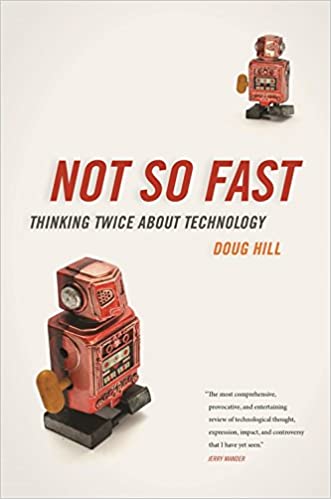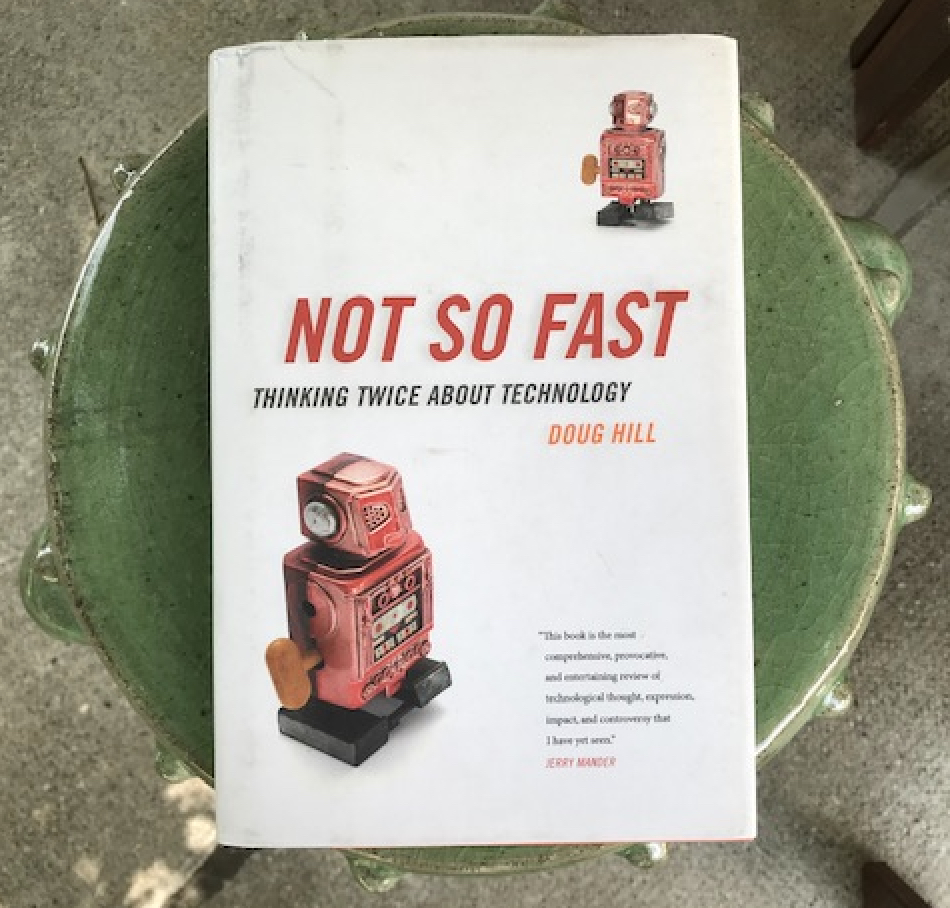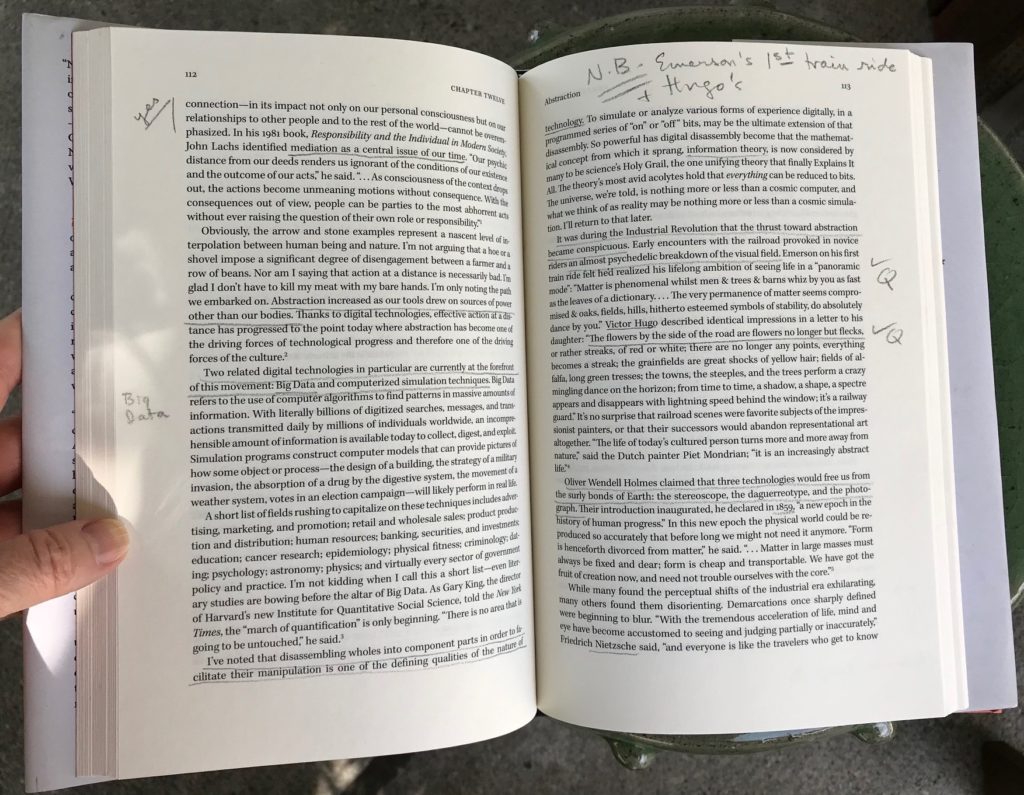
Technology is a topic I often touch on in this blog* because first, it’s directly relevant to my book in-progress on Far West Texas, and second, the digital revolution we’re all living through is so dizzyingly, all-at-once enchanting and consternating. Where is this all taking us? Mars? The Stars? Or, will we all end up like the pudding-like protagonist of E.M. Forster’s eerily prophetic short story “The Machine Stops”? How does this digital revolution connect to / echo with technological change in the past, for example, with the advent of the printed book, the telegraph, radio, telephones, cinema, television? With other technologies, from the railroads to airplanes? Or for that matter, the bow and arrow, or say, or the clock? And how is the digital revolution, in fact, or not in fact, fundamentally different from what has come before? Most importantly, how to live a human life, a good and creative life, say, this writer’s life, that is not hijacked by technological imperatives, above all, the constant pull to the glamor of the screens? (And I mean “glamor” in its original, occult sense.) So many questions… Sometimes some of the literature begins to answer them.
*See for example Notes on Wolfgang Schivelbusch’s The Railway Journey; Jerry Mander’s Ten Arguments for the Elimination of Television; The Typewriter Manifesto by Richard Polt, Plus Cyberflanerie on Technology; Marshall McLuhan (1911-1980): Some Notes ; and Notes on Stephen L. Talbott’s The Future Does Not Compute.
Doug Hill’s Not So Fast: Thinking Twice About Technology

The first and major thing I appreciated about Doug Hill’s Not So Fast is that he provides an up-to-date general overview of the literature on the history and the philosophy of technology. Francis Bacon, Henry James, Martin Heidegger, Aldous Huxley, Marshall McLuhan, Lewis Mumford, Langdon Winner, Norbert Wiener, Jacques Ellul, Ray Kurzweil, Kevin Kelly, Stewart Brand, Steve Jobs–and an army more– they’re all there. Secondly, in engaging, butter-smooth prose throughout, Hill tackles, as he quotes philosopher Albert Borgmann, “the pervasiveness and consistency of [technology’s] pattern.” I mean to say, Hill has accomplished a rare combined literary and intellectual feat.
Here’s the catalog copy for Not So Fast:
There’s a well-known story about an older fish who swims by two younger fish and asks, “How’s the water?” The younger fish are puzzled. “What’s water?” they ask.
Many of us today might ask a similar question: What’s technology? Technology defines the world we live in, yet we’re so immersed in it, so encompassed by it, that we mostly take it for granted. Seldom, if ever, do we stop to ask what technology is. Failing to ask that question, we fail to perceive all the ways it might be shaping us.
Usually when we hear the word “technology,” we automatically think of digital devices and their myriad applications. As revolutionary as smartphones, online shopping, and social networks may seem, however, they fit into long-standing, deeply entrenched patterns of technological thought as well as practice. Generations of skeptics have questioned how well served we are by those patterns of thought and practice, even as generations of enthusiasts have promised that the latest innovations will deliver us, soon, to Paradise. We’re not there yet, but the cyber utopians of Silicon Valley keep telling us it’s right around the corner.
What is technology, and how is it shaping us? In search of answers to those crucial questions, Not So Fast draws on the insights of dozens of scholars and artists who have thought deeply about the meanings of machines. The book explores such dynamics as technological drift, technological momentum, technological disequilibrium, and technological autonomy to help us understand the interconnected, interwoven, and interdependent phenomena of our technological world. In the course of that exploration, Doug Hill poses penetrating questions of his own, among them: Do we have as much control over our machines as we think? And who can we rely on to guide the technological forces that will determine the future of the planet?
P.S. James Howard Kunstler’s podcast interview with Doug Hill about Not So Fast is well worth a listen.
More anon.

Q & A with Sergio Troncoso, Author of
A Peculiar Kind of Immigrant’s Son
John Bigelow, Jr. in the Journal of Big Bend Studies
“What Happened to the Dog?” A Story About a Typewriter, Actually,
Typed on a 1967 Hermes 3000
#
Find out more about
C.M. Mayo’s books, articles, podcasts, and more.







